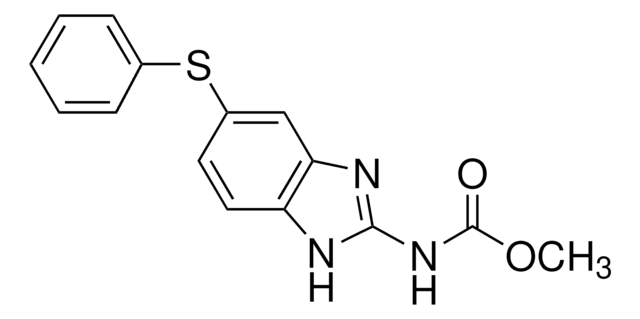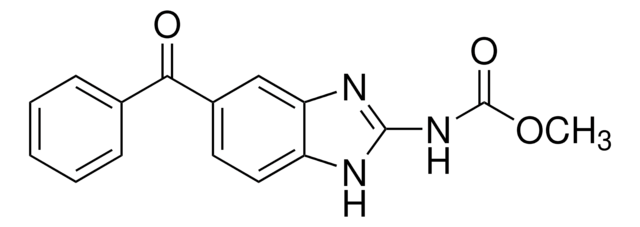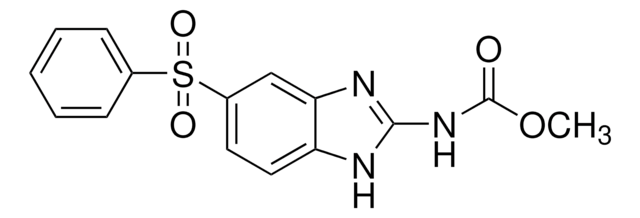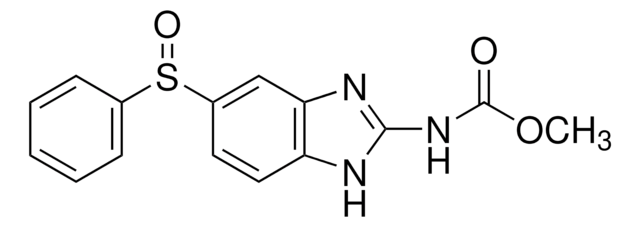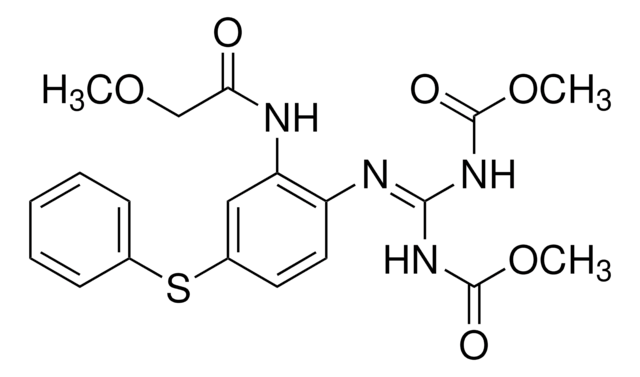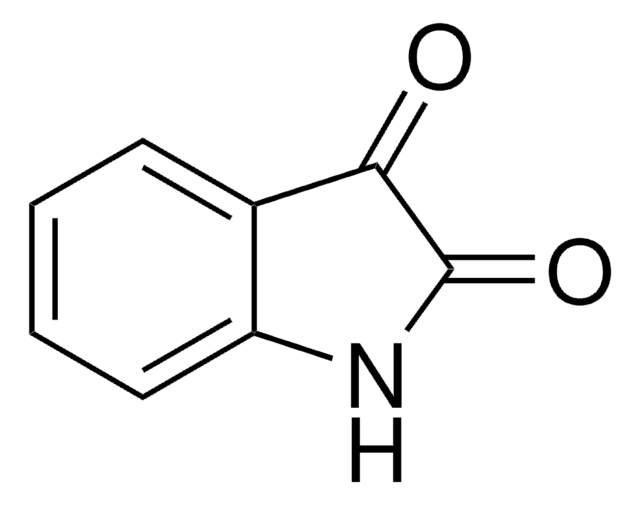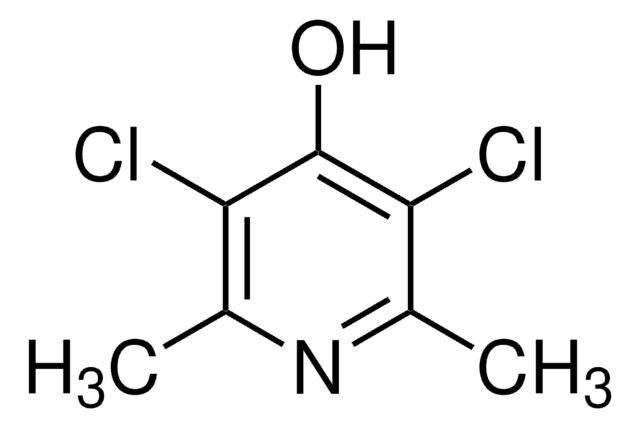F5396
Fenbendazole
≥98%
Synonym(s):
Methyl 5-(phenylthio)-2-benzimidazolecarbamate
About This Item
Recommended Products
Assay
≥98%
SMILES string
COC(=O)Nc1nc2cc(Sc3ccccc3)ccc2[nH]1
InChI
1S/C15H13N3O2S/c1-20-15(19)18-14-16-12-8-7-11(9-13(12)17-14)21-10-5-3-2-4-6-10/h2-9H,1H3,(H2,16,17,18,19)
InChI key
HDDSHPAODJUKPD-UHFFFAOYSA-N
Looking for similar products? Visit Product Comparison Guide
General description
Application
- Fenbendazole in Veterinary Medicine: Investigated for efficacy against coccidicidal fungi in avian species, demonstrating broad-spectrum antiparasitic potential. Additionally, its environmental impact and pharmacokinetics reveal insights for sustainable agricultural practices and disease vector control. (Lozano et al., 2024), (Hachgenei et al., 2024), (Durden et al., 2023).
- Food safety and allergen detection: Fenbendazole′s implications in food safety are explored through quantitative PCR methods for detecting allergenic species in foods, underscoring the importance of accurate detection techniques in food industry compliance and safety standards (Costa et al., 2023).
- Analysis of antibiotic and anthelmintic residues: The occurrence and exposure evaluation of Fenbendazole residues in cow milk in China is studied, emphasizing the need for rigorous monitoring of food products to ensure public health safety (Chang et al., 2023).
Signal Word
Warning
Hazard Statements
Precautionary Statements
Hazard Classifications
Aquatic Acute 1 - Aquatic Chronic 1 - Repr. 2 - STOT RE 2
Target Organs
Liver,lymph node,Stomach,Nervous system
Storage Class Code
11 - Combustible Solids
WGK
WGK 3
Personal Protective Equipment
Certificates of Analysis (COA)
Search for Certificates of Analysis (COA) by entering the products Lot/Batch Number. Lot and Batch Numbers can be found on a product’s label following the words ‘Lot’ or ‘Batch’.
Already Own This Product?
Find documentation for the products that you have recently purchased in the Document Library.
Customers Also Viewed
Our team of scientists has experience in all areas of research including Life Science, Material Science, Chemical Synthesis, Chromatography, Analytical and many others.
Contact Technical Service